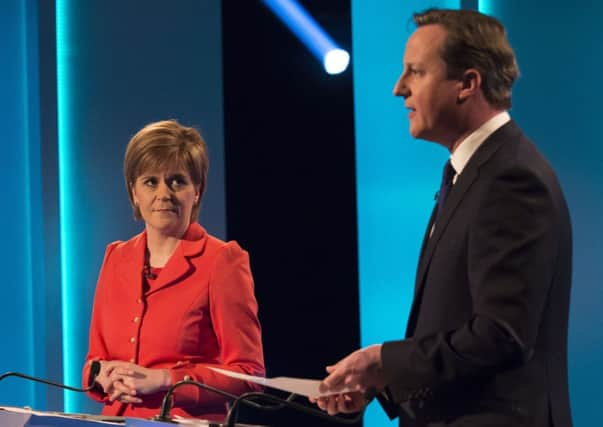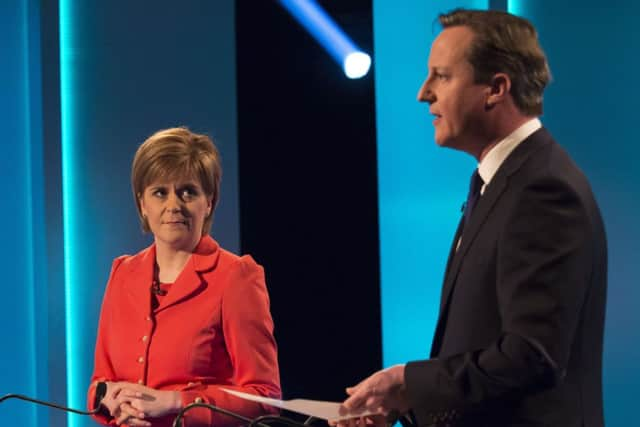John Curtice: Cameron didn’t want to be there


But the risks were soon evident. Nick Clegg set the tone by attacking the Tories’ reluctance to propose any further tax increases on the better off. That was a cue for all the opposition leaders to attack the coalition’s cuts and its handling of the deficit, including Nicola Sturgeon resorting to her favourite tactic of constantly interrupting her opponent. Only towards the end did the Nationalist and Green leaders attack Ed Miliband for the cuts he was proposing.
The second subject of the night, the NHS, gave David Cameron less trouble. After all, there was no dispute between the leaders as to the value of the NHS. But an argument about “privatising” the NHS did see the Nationalist and Green leaders attack Mr Miliband for the use of private provision when Labour was in power.
Advertisement
Hide AdAdvertisement
Hide AdWhen it came to the third subject – immigration and Europe – Mr Farage was the target of criticism, with Mr Cameron joining the chorus. Yet Mr Farage seemed to survive the fire, winning support from both Natalie Bennett of the Greens – on holding a EU referendum – and Plaid Cymru’s Leanne Wood over the question of EU membership making it “impossible” to control immigration.


Perhaps Mr Cameron’s biggest problem was that he looked like a man who would have preferred not to be there. Instead of his normally suave, self-confident self, he often looked wooden, unsmiling and concerned.
In contrast, Mr Miliband came across as relaxed, almost prime ministerial. He had certainly learnt from Mr Clegg’s 2010 success, spending most of his time talking to camera and reaching out to the people “at home”.
ITV had thought about how to handle a seven-leader debate, and the decision to have 18 minutes of free-flowing debate on each subject ensured the event did occasionally spark into life.
• John Curtice is Professor of Politics at Strathclyde University.
FOLLOW US
SCOTSMAN TABLET AND MOBILE APPS